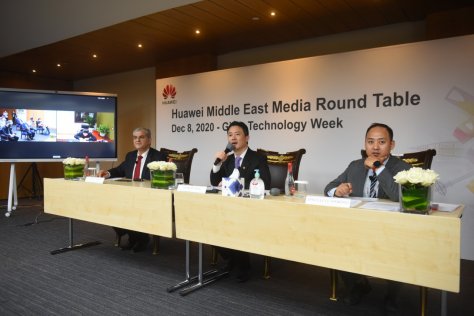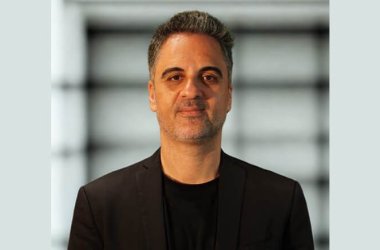Dubai, UAE – December 10, 2020: Ambitious investments in digital infrastructure have created unprecedented opportunities in the Middle East, while helping the region to rebound swiftly from the challenges of 2020, according to Huawei’s top executive in the region. Charles Yang, President of Huawei Middle East, recently highlighted the company’s key takeaways from the year as the global ICT solutions provider sought to help governments and enterprises bring digital to more people at a time when it was needed most.

The Middle East was relatively well prepared from an ICT standpoint for the disruptions caused by the COVID-19 pandemic, noted Yang, with many countries having been early global adopters of infrastructure such as 5G. “That foundation of connectivity enabled many countries to cope with a surge in data traffic as a result of work, education, shopping, and even health services moving online,” said Yang, who estimated that the Middle East’s data traffic increased in volume by around 40 per cent over the year.
Earlier this summer, experts at McKinsey noted that in a matter of just eight weeks, the world vaulted five years forward in consumer and business digital adoption as a result of the COVID-19 pandemic.
As was evident during the recent GITEX Technology Week the Middle East has benefitted from strong public leadership, clear ICT development agendas, and the encouragement of foreign direct investment in the technology field. “At the same time, each country must continue to stimulate growth and address the impact of the pandemic. So as nations continue to mature in both connectivity and computing capabilities in 2021, they must consider how to maximize the long-term value creation from those projects,” said Yang.
In particular, Huawei contends that talent development, technology synergy, and open collaboration will be pivotal to harvesting business and social value in 2021.
“We have found many partners in government and in the private sector who share the realisation that talent is really the enabling factor in digital transformation, not just the technology itself,” noted Yang. It is also why over the past 20 years, Huawei has helped the Middle East cultivate around 100,000 ICT talents, training local experts in building scenario-specific applications that benefit society.
This local talent, according to Yang, must now be empowered to create deeper synergy between connectivity, cloud, AI, computing, and industry applications. These five domains are now coming together to create historic opportunities in the region. To support those efforts, Huawei is planning to invest approximately USD100 billion globally in technology research and development in the coming five years.
Yang believes that such programs will not only support Huawei, but the wider ecosystem of governments, academia, and enterprises embracing digital transformation in the Middle East. “Even with today’s best talent and technologies, what is most important to spurring future innovation is maintaining an open and cooperative ICT ecosystem, regardless of the country or a particular company’s country of origin,” concluded Yang. “That belief in shared success has helped make the Middle East a global reference for digital resilience and sustainability during this challenging year, and will no doubt be inherited even after the pandemic is over”.





